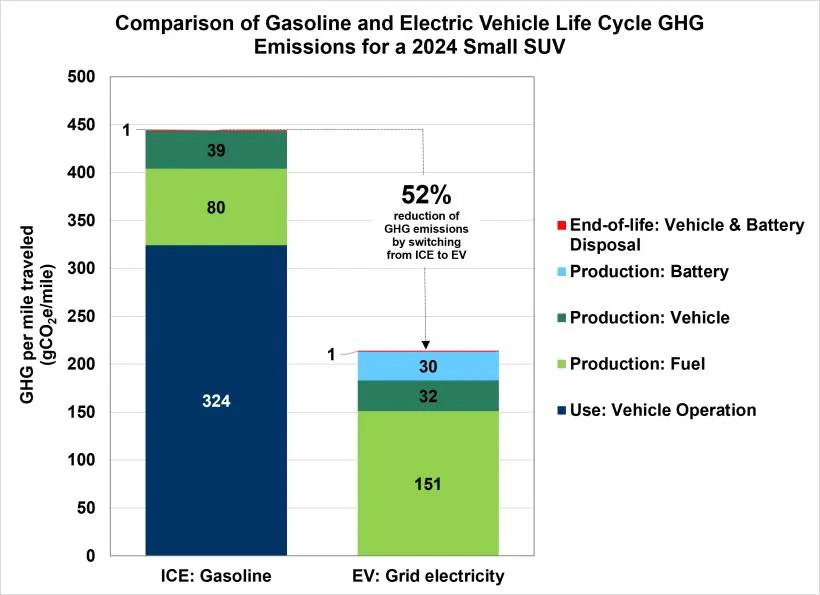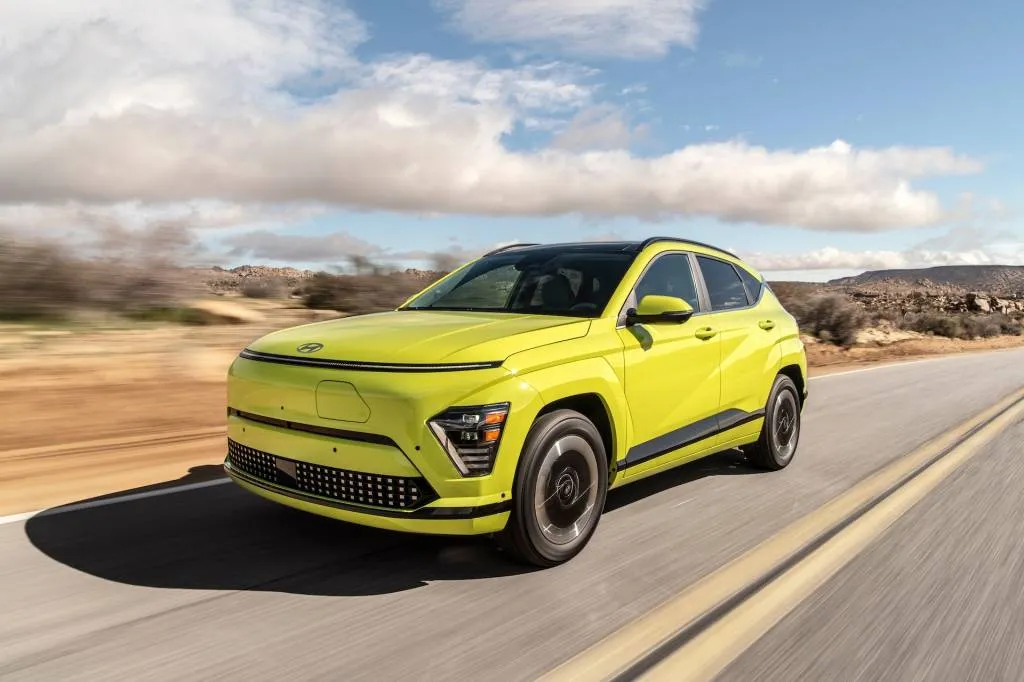A small electric SUV with 300 miles of range produces 52% fewer life-cycle greenhouse gas emissions than a comparable gasoline vehicle, according to the U.S. Department of Energy (DOE).
Greenhouse gas emissions from production and distribution are currently around double that of gasoline production and distribution, the DOE notes, but that’s more than offset by the tailpipe emissions of gasoline vehicles, which represent nearly three quarters of their total life-cycle emissions.

Comparison of 2024 lifetime greenhouse gas emissions of small SUVs (via U.S. Department of Energy)
And while producing and burning fossil fuels will never get cleaner, it’s possible for overall EV emissions to decrease through the use of renewable energy to power the grid. This is already happening. The Union of Concerned Scientists (UCS) in 2020 found that 94% of Americans already lived in a place where, based on the local grid, electric cars were cleaner than 50-mpg gasoline cars.
That being said, other analysis has found that SUVs are still not the best choice for the environment regardless of whether they’re powered by electricity or gasoline. The International Energy Agency (IEA) said earlier this year that SUVs emit 20% more CO2 compared to cars regardless of powertrain type. If those extra emissions were compared to countries, they would make SUVs the world’s fifth largest CO2 polluter, according to the IEA.

2025 Hyundai Kona Electric
The IEA also warned in 2023 that the SUV market is fueling global oil demand, countering some of the emissions reductions one might hope to see from higher EV adoption. SUVs are generally heavier than cars, which impacts efficiency of combustion and electric powertrains alike. That inefficiency is magnified by increased global SUV sales, which reached a record 48% in 2023, according to the IEA.
In this case the DOE’s distinction between overall SUV emissions and those of smaller models is key. The DOE previously noted that smaller SUVs are better for the environment in terms of CO2 emissions, and that EVs and plug-in hybrids are better still.
Content Disclaimer and Copyright Notice
Content Disclaimer
The content provided on this website is sourced from various RSS feeds and other publicly available sources. We strive to ensure the accuracy and reliability of the information, and we always provide source links to the original content. However, we are not responsible for the content’s accuracy or any changes made to the original sources after the information is aggregated on our site.
Fair Use and Copyright Notice
This website may contain copyrighted material, the use of which has not always been specifically authorized by the copyright owner. We believe this constitutes a “fair use” of any such copyrighted material as provided for in section 107 of the US Copyright Law.
In accordance with Title 17 U.S.C. Section 107, the material on this site is distributed without profit to those who have expressed a prior interest in receiving the included information for research and educational purposes. If you wish to use copyrighted material from this site for purposes of your own that go beyond fair use, you must obtain permission from the copyright owner.



